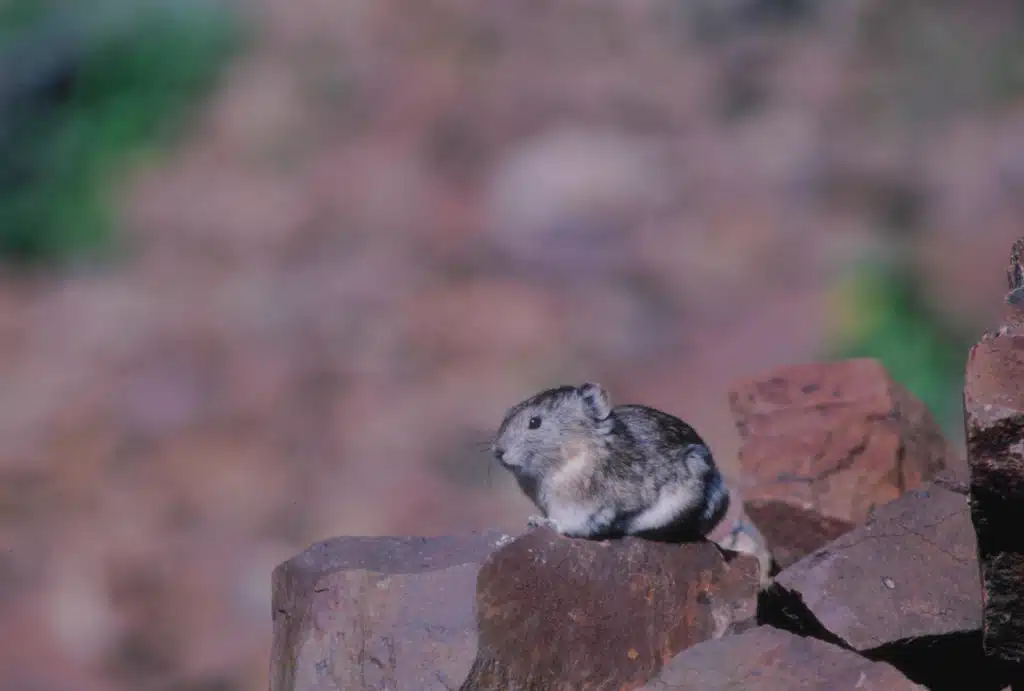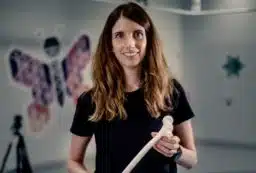There is more than we know in the rainforest canopy
A crane-driving young researcher from the Rainforest CRC at James Cook University in North Queensland is using a tower crane to reveal a whole new world of life in the canopy of the Australian rainforest.
Already she has found that the native prehensile-tailed mouse, once considered rare, is in fact, common and significant in the tree tops.
Romina Rader spent a year gaining her crane driver’s ticket in order to pursue her Masters and other research at the Australian Canopy Crane Research Facility nestled within the Daintree World Heritage Rainforest.
“Traditionally, researchers have had to spend a lot of time and effort using ropes and climbing gear to get up into the canopy,” Romina says.
“But using the crane, I can easily get to all heights in the trees and thus compare the small mammal communities found at different levels.”
“Finding out which mammals use the canopy, why they are up there and whether their presence is good or bad for the forest are important research questions,” says Romina.
“We need to know what species are there in order to protect them as well as understand how they contribute to the ecology of the rainforest.”
Romina is now unravelling the secretive nocturnal habits of some of Queensland’s small rainforest mammals. She has already found that the rat community has an important impact on some plant species. By removing the pulp from fruits they can increase the chance of seeds germinating.
This is important for the long-term survival of forests and the maintenance of forest diversity.
“Traditionally when researchers set out to survey small mammal communities, traps are only set on the ground,” says Romina.
This means climbing or tree-dwelling species may be underestimated or even excluded, leading to the conclusion that they are rare when in fact they may only be rare on the ground. This has proved true with the exciting discovery of the prehensile-tailed (or soft-furred) mouse.
Romina is one of 13 Fresh Scientists presenting their research to the public for the first time thanks to Fresh Science, a national program hosted by the State Library of Victoria. One of the Fresh Scientists will win a trip to the UK courtesy of the British Council to present his or her work to the Royal Institution.





 Fresh Science is on hold for 2022. We will be back in 2023.
Fresh Science is on hold for 2022. We will be back in 2023.